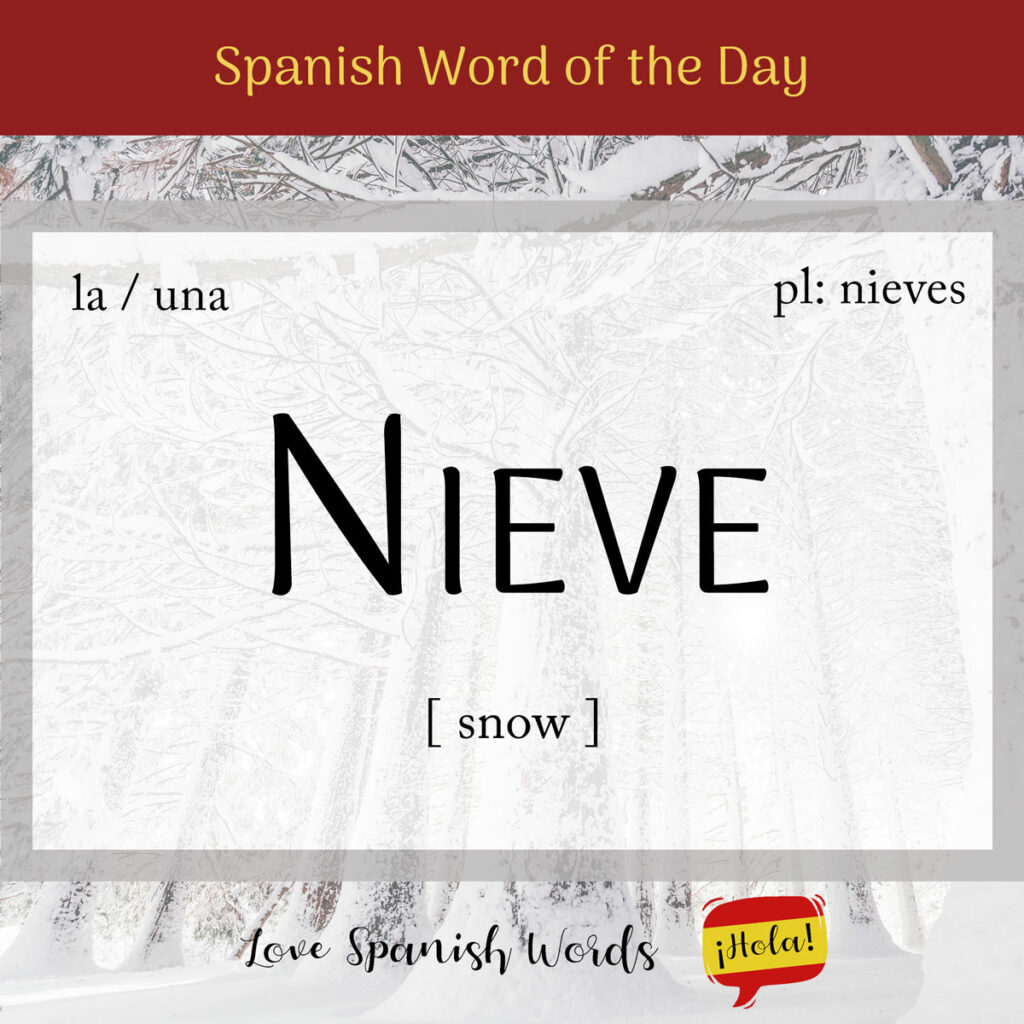When temperatures are cold and the conditions are right, some of us are lucky enough to see snowfall in the winter time. The Spanish word for snow is nieve and it comes from the Latin nix, nivis with the same meaning.
Latin American Pronunciation
European Pronunciation

Nieve is a feminine noun that takes the following definite and indefinite articles:
- la nieve = the snow
- las nieves = the snows
- una nieve = a snow
- unas nieves = some snow
In Spanish, nieve is generally considered a non-countable or uncountable noun, known as a sustantivo incontable or sustantivo no contable. This means that it’s treated as a mass noun, referring to an unquantifiable substance or concept.
There are various terms and phrases that contain the word nieve and below is a selection of the most common:
- hay nieve = There is snow
- cae nieve = snow falls (is falling)
- bola de nieve = snowball
- muñeco/hombre de nieve = snowman
- nieve en polvo = powder snow
Un hombre quita la nieve de su coche.
A man clears the snow from his car.


In Latin America nieve can also take on other meanings, primarily as the word for a frozen dessert such as ice cream or sorbet and secondly as the colloquial word for cocaine. For example:
- La nieve de limón de la tienda cerca de la playa es deliciosa. = The lemon sorbet from the store near the beach is delicious.
- Quiero dos bolas de nieve de vainilla, por favor. = I want two scoops of fresh ice cream, please.
- La cocaína es conocida como nieve. = Cocaine is known as snow.
Useful idiomatic expressions featuring nieve
Ser blanco como la nieve
Literal translation: to be as white as snow
English meaning: This can be taken in two ways; it can literally mean that something is very white in colour or it can mean the something/someone is very pure
A punto de nieve
Literal translation: to the point of snow
English meaning: Again this has two meanings describing something that is stiff, in cookery for example when whisking egg whites and then in a sexual context to mean aroused.

